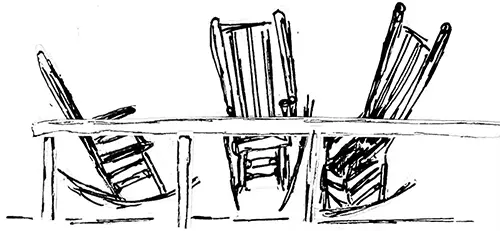literature 42
Contemplation in Action: Booth Tarkington and the Art of Business
Tarkington hopes that more Americans will choose to trek that path of fruitful tension in this fragmented world, however difficult it may prove.
Muses of A Fire: An Interview with Paul Krause
It seems that true love has been forgotten.
In Praise of Communitarian-not Corporate-Baseball
As Kauffman tells Bardenwerper, perhaps being cut loose from MLB will turn out to be a blessing.
Between Spirituality and Literature
The resulting work is by turns wise and questioning, witty and candid, self-effacing and impassioned.
Subservience to Progressive Little Notions
If beauty can save the world, maybe it can even save the art world.
Writing Exile and Reading Homeward
Here, then, is my homecoming of the imagination: to hold the past bright in memory, and to love also the saplings and the weeds of my exile.
Gárces’s Travels: A Review of Jeremy Beer’s Beyond the Devil’s Road
Much might be said about the neglect of the history of the American Southwest
Marking the Year on Two Calendars: An Interview with Matthew Miller
Knowledge is a path to love, and so I’m bound to say that the book did change my affection for the place.
Away From Politics with Kathleen Raine (Then Back Again)
Are we capable of that on a scale that will regenerate our political life? Perhaps not, at least for now, but we can take heart from the knowledge that, over…
Mary Shelley’s Grief
Mary writes with gentle pathos, patience, and calm—traits common to those who have endured terrible loss. Her observations on life’s many ironies offer catharsis for author and reader alike.
Hope Out of Despair: A Review of Byung-Chul Han’s The Spirit of Hope
But I suspect that this stirring book will strike a chord with many readers of Front Porch Republic.
Jordan Peterson: From America’s Dad to America’s Guru
Christianity spread because people actually believed Jesus was their Lord and Savior. They believed in miracles not metaphors.
Belonging to the Garden
I belong to this place—if not for the next thousand years, at least for the summer. In such a displaced age, even that has to mean something.
Searching for The Thing: A Review of The Thing That Would Make Everything Okay Forever
While she relates the years of kaleidoscopic confusion, she provides waypoints to keep the reader grounded: “This is where we are, and this is where we’re going.”
Nadya Williams and The Good News
Williams reminds us of a lesson that we should have already learned good and hard, namely that rejection of Christianity does not result in blissful liberation and self-expression.
Step Off the Assembly Line and Take Up the Work of Loving Care: A Review of Mothers, Children, and the Body Politic
So whatever value motherhood gets assigned on earth, it’s pretty clear what position it holds on high. You may feel invisible here, but you certainly aren’t in Heaven.
A Homeward Calling: Review of Tony Woodlief’s We Shall Not All Sleep
One of the novel’s achievements is the way that it unfolds this centuries-long story with both clarity and subtlety, establishing a clear feel for right and wrong while casting no…
The White Whale and the Problem of Grasping
Perhaps that’s the lesson at the heart of both The Master and His Emissary and Moby-Dick: when we adopt a utilitarian posture of domination over the world, we misapprehend it.
Wheeler Catlett’s Love Beyond Organization in Wendell Berry’s “Fidelity”
Organized community events bring people together and are an integral part of forging strong communal bonds in a place. Like the law, they serve a purpose in a community’s ecosystem…
The Art of Good Gossip: Unexpected Lessons about Virtue and Community from Little Women
To love and learn from each other in our communities is what good gossiping accomplishes.
Unpacking My Library (Again)
Maybe, in the end, a home library does what a long-inhabited home does: charts a middle ground between the chaos of the world and the hyper-rationality of modernity.
Blue Walls Falling Down: A Novel
Joshua Hren’s new novel, Blue Walls Falling Down, releases today. We’re happy to share the following excerpt with FPR readers.
Prickly Porcupine on Natural Law: A Review of David Lyle Jeffrey’s Tales From Limerick Forest
Hence this book is something special: a new set of Christian fables on natural law that do more than teach simple morals or seek to modify children’s behavior.
Human Dominion in Kipling’s Just So Stories
Rudyard Kipling’s 1902 Just So Stories are a delightful anomaly—they feel like folk tales but were largely invented by Kipling himself as bedtime stories for his eldest daughter, Josephine.
















